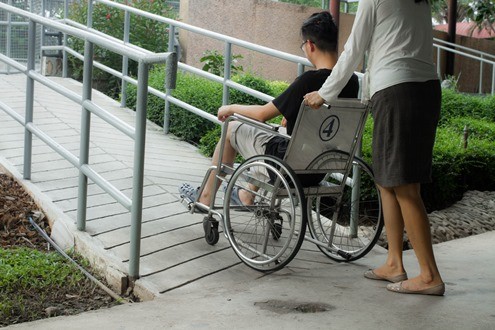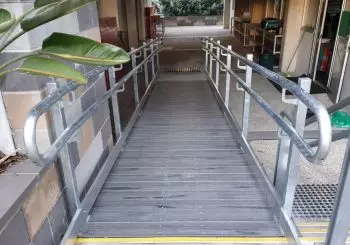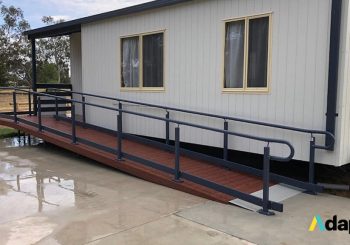Mobility can prove to be a major problem for individuals that use wheelchairs.
It can be extremely challenging for them to access buildings that are above grade or have steps leading up to the entrances and exits. These individuals will need special access provisions in order to enter buildings as well as navigate different areas. Under the DDA, it is mandatory for public buildings as well as institutions to ensure that their property is easily accessible to wheelchair-bound individuals.
Common Ramp Types
These ramps provide people with limited mobility, the freedom they crave. While there are a large number of ramp models and types to choose from, some of the most common ones include:
- Telescoping Track Ramps – These wheelchair ramps are generally made of aluminium. They are light and compact in design which makes them the ideal solution for wheelchair users. In most instances, telescoping ramps have non-skid treads that provide very good traction, even when they are wet.
- Threshold Ramps – As the name suggests, these ramps are specifically designed to make moving through doorways much easier for wheelchair users. They fit very snugly against sliding doors, raised landings and door frames. Wheelchair users can navigate the bumps and grooves with ease. The features are generally made of aluminium and are available in a number of different sizes. You can choose based on your specific requirements and the setting they are to be installed in.
- Suitcase Ramps – These portable ramps are lightweight and compact as they have been designed to be folded. They are typically made of aluminium and can withstand very heavy loads. They are available in different lengths ranging from 2′-8′. When not in use, they can be easily folded and stored and are suitable for big or small steps and stairways. Suitcase ramps can be used either in outdoor or indoor settings as required. These are more of a temporary solution and are suitable for spaces where there isn’t sufficient space for a standard ramp feature.
- Trifold Ramps – These are very similar in design and structure to the suitcase ramps, and can be folded for transportation or storage. They are suitable for use against higher stairs. Trifold ramps are generally made from aluminium and can range from 5′-10′ in length.
- Modular Ramps – These are the very attractive alternative to standard wooden fixed ramps. Since they have a modular design, they are not considered to be permanent installations and you don’t need a permit to install them. These semi-permanent structures could be made from aluminium or even Colorbond steel. You can choose from various models that give you the flexibility to pick the type of access angles and levels you need. You can also opt for different types of handrails, which makes them ideal to accommodate walkers, rollators, and canes as well.
Some Facts About Modular Ramps
When you are considering getting a ramp installed on your commercial or residential property it is important to ensure but you conduct a certain amount of research. This will help you determine which product will work for your requirement. If your property has enough of space at the access points, modular ramps are an excellent option that offer the best of both worlds.
They are very sturdy, resilient, have design flexibility and are extremely versatile. They are suitable for commercial as well as residential properties and are low-maintenance features. They can also be repositioned in any other location if required.
If you want more information about our modular ramp systems, don’t hesitate to get in touch with us at Adapta. You can call 1800 232 782 or contact us through this form.




